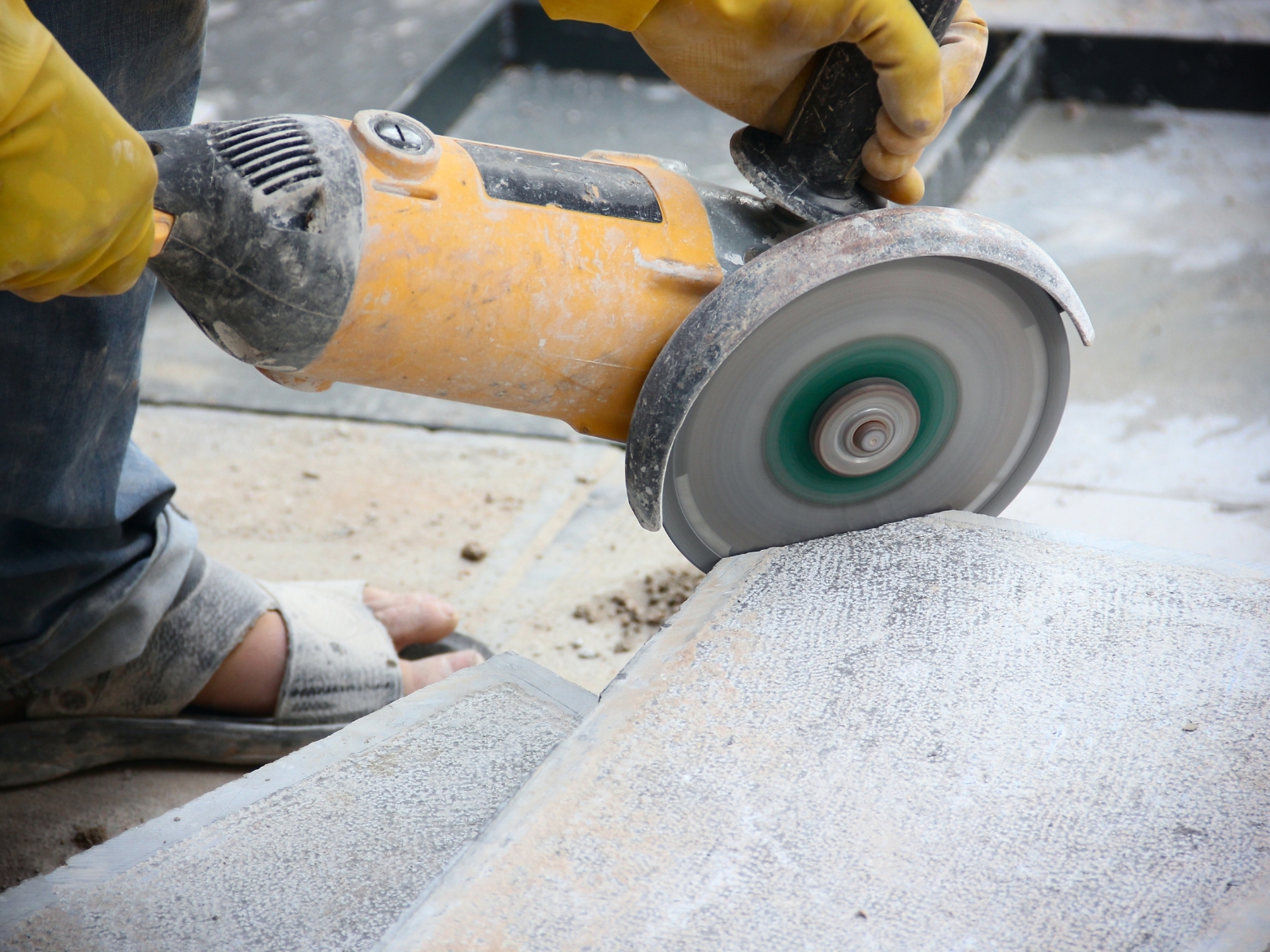On 1 July 2024, the State Government’s new work health and safety regulations banning the manufacture, supply, and processing of engineered stone slabs and panels took effect in Western Australia. Here is what businesses that previously worked with engineered stone need to know.
What is engineered stone?
Engineered stone is a composite material made from crushed natural stone, typically quartz, bound together with a polymer resin. It is designed to replicate the appearance of natural stone while offering greater durability, consistency, and a wide range of colours and patterns.
Engineered stone is commonly used for countertops, flooring, and other surfaces in residential and commercial applications due to its non-porous nature, which makes it resistant to stains and scratches.
Why the ban?
This ban aims to protect workers from the severe health risks posed by the dust generated during the manufacture and installation of engineered stone, which is commonly used for kitchen and bathroom benchtops.
The ban and regulations will impact up to 1,000 WA workers operating with engineered stone including manufactures, suppliers, and cabinet makers. Many of these workers operate in micro, small or medium businesses across a wide range of industries conducting crystalline silica work.
What is the health risk of engineered stone?
The primary reason for the ban is to prevent harmful exposure to silica dust, which can lead to silicosis, an incurable and debilitating lung disease which mainly affects workers exposed to silica dust in jobs such as construction and mining.
When activities such as cutting, drilling, grinding, shaping, sanding, and polishing engineered stone occur, fine crystalline silica dust is produced. Inhaling this dust can result in severe health issues, including silicosis, which can be fatal.
A recent WorkSafe WA silica compliance project found non – compliance was still occurring in 75 percent of workplaces, resulting in over 1,000 enforcement notices being issued. Twenty-four silicosis cases were identified.
Transitional period for existing contracts
Recognising that some businesses and consumers may have already entered construction contracts requiring the use of engineered stone, the State Government has put a transitional period in place. Installation of engineered stone products can still take place for contracts signed before 1 January 2024, provided the work is completed by 31 December 2024.
Stronger regulations for silica-containing products
In addition to the ban on engineered stone, stronger work health and safety regulations will be introduced on 1 September 2024 to reduce risks associated with other silica-containing products, such as concrete, bricks and tiles.
These measures, based on national model regulations, aim to protect workers across various industries, such as construction and manufacturing, from harmful exposure to respirable crystalline silica. It is important to note that mining is not affected by this new legislation, as existing work health and safety laws for mine sites already address this issue.
Safety guidelines and controls
For businesses operating during the transitional period or handling legacy engineered stone, the following safety measures must be in place:
- Wet cutting and dust suppression: Use water suppression (wet cutting) systems to minimise dust.
- On-tool dust extraction: Use on-tool dust extraction systems to capture dust at the source.
- Local exhaust ventilation: Implement local exhaust ventilation systems to control airborne dust.
- Protective equipment: Provide workers with respiratory protective equipment and ensure it is worn at all times during processing activities.
Tip: Dry cutting, trimming, drilling, sanding, grinding, or polishing of engineered stone without effective controls is strictly prohibited.
Managing risks and protecting workers
To manage the risks associated with working with engineered stone and minimise the incidence of respirable crystalline silica-related diseases, such as silicosis, businesses should refer to the Managing the risks of respirable crystalline silica from engineered stone in the workplace: Code of practice.
This code of practice remains available for work permitted under transitional arrangements until 31 December 2024.
A person conducting a business or undertaking (PCBU) must notify WorkSafe before removing, repairing, making minor modifications, or disposing of engineered stone.
Implementation and Further Information
On 22 March 2024, Commonwealth, state, and territory Work Health and Safety Ministers agreed a prohibition on the use of engineered stone from 1 July 2024.
Exemptions to the ban are:
- Finished engineered stone products that do not require processing or modification are not prohibited.
- Work carried out between 1 July and 31 December 2024 is exempt from the prohibition for contracts entered into on or before 31 December 2023.
- Disposal of installed and uninstalled engineered stone is still permitted, if controlled in line with existing jurisdictional waste management requirements.
The ban on engineered stone in Western Australia is a significant step towards protecting the health and safety of workers in the construction industry.
By adhering to these new regulations and implementing the recommended safety measures, businesses can contribute to a safer work environment and help prevent future cases of silicosis.
More information
- For detailed information and resources on the engineered stone ban, including guidance for businesses and consumers, visit Safe Work Australia’s website.
- Learn about WA’s work health and Safety laws.
- Find out about the support the SBDC provides to construction subcontractors.




